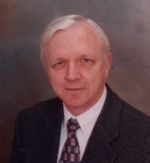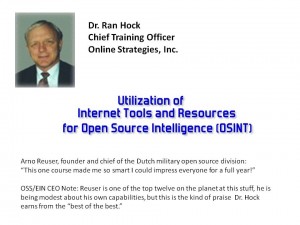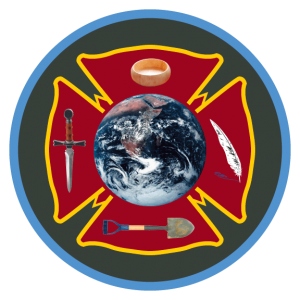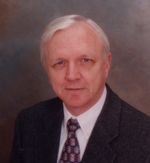 Innovative Capitalism,
Innovative Capitalism,
January 28, 2007
Dee Hock
Edit of 30 Dec 07 to add comment and links.
New comment: something big is happening, in both politics and business. Moral green open transparent memes are in overdrive. See links.
I read a lot, a solace and a life line out of the madness of today. I finished up my week-end with this most unusual gem, and it is with some emotion that I put it down and take the time to write this review.
In my lifetime, there have been fewer than four individuals able to understand me and manage me, and Dee Hock now joins that number, sight unseen. This is one of the *good guys*! If he and Bill Bradley and Jim Turner (Transpartisanship) can come together, we can remake the world.
The book benefits from a Foreword by Peter Senge, who notes that VISA as it emerged was a disruptive concept that threatened traditional powers. Senge also notes the importance of distinguishing between enabling technologies, such as the Internet, and what is enabled, such as democracy or equitable wealth creation and sharing. Finally, Senge observes that global complexity requires distributed democracy, to which I and the author would both be quick to add: “and moral capitalism.”
The book is at root about the failure of all of our instititutions, and the need to find a third way between over-bearing centralization and anarchic decentralization. The author coins the word “chaordic” to deswcribe an even-handed and often-changing balance between the two.
Dee Hock is a philosopher-king, and I am reminded of “Voltaire's Bastards” and “Consilience” as I read his denouncement of the Western concept of separability and his own understanding that complexity is about never-ending and alway-changing relationships. In one example with the US Army, he explores how rules-based organizations waste 45-85% of the time and value of their employees. He specifically notes that human ingenuity is the ultimate resource and is abundant, but too often constrained if not crushed by schools, armies, corporations, and so on.
The author's morality shines forth as he describes non-monetary exchanges of value as the best possible foundation for what others call reciprocal altruism. At one point he observes that “leadership is not necessarily constructive, ethical, or open.”
The entire book is about the creation of an organization in which participation is the primal element, agreement is dynamic, and trust and tolerance are the prevailing values. He states that organizational heaven is purpose, principle, and people. Purgotory is paper and procedure. Hell is rule & regulation.
He realizes early on that fraud and theft are major challenges, and that information is, as he quotes Gregory Bateson, “a difference that makes a difference.”
I have a big note: this is a smart, ethical, practical, inspiring person–one of the good guys!
The author is deeply and empathetically aware of the discord between our industrial era understandings and perceptions, and the bio-cultural realities of the Earth and all its processes. He sees clearly what the “true cost” or natural capitalism literature seeks to teach.
A line jumps out, in which the author is lamenting that we have such a wealth of information, yet have drifted into “collective madness.”
He clearly sees that our current form of predatory immoral “bandit” capitalism specializes at the socialization of cost and the capitalization of gain, which is fancy wording for looting the commons and stealing the profit. He also points out that we are putting the debt on to future generations.
He clearly describes the current form of corporations as inimical to the commons.
The book concludes strongly, lionizing the will to succeed when joined with the grace to compromise, placing VISA on a par with the Internet and LINUX as an organizational model for the future, and noting that growth comes from failure.
On page 284 he lists the following ten attributes from a living organization in Spain that represents the best of the chaordic model:
01 Open membership
02 Democratic organization
03 Worker sovereignty
04 Instrumental subordinate nature of capital
05 Participation in management
06 Wage solidarity
07 Cooperating between cooperatives
08 Social transformation
09 Universal nature
10 Education (he might have added, life-long, unconstrained, free of the prison-rote we now suffer, and teaching sharing as well as learning)
He ends with the story of his recall from his wanderings in the wilderness, to explore examples, models, the intellectual foundation, and organizations by which we might save the Planet and our species, to include the necessary means of mind-crafting for the future.
I actually had goose-bumps as I put this book down. I felt, very strongly, that I had been within the aura of a great leader, a gentle person, a world-class humanitarian, a capitalist Dalai Lama if you will (don't laugh–this author strikes me as quite amazingly special).
I cannot say enough about this book. It joins the very short list of books I have posted on moral leadership through open source intelligence, and it places Dee Hock up there with Buckminster Fuller, Margaret Wheatley, Robert Buckman, and a tiny handful of Senge's and Druckers.
I hope I meet him one day. Right now, he joins Bill Bradley as one of just two people I'd be willing to leave my mink-lined bunker to follow into battle. This book and this author's mind and clarity of communication have simply blown me away.
See the two images I have loaded here to illustrate concepts that I share with this author. You can see other images at Earth Intelligence Network, where you can also use the Amazon Base Page to get access to my 30 lists of books for each of the ten threats, twelve policies, and eight challengers. I am also creating Amazon discussion pages for each of these.
Related books:
The Battle for the Soul of Capitalism
The Tao of Democracy: Using Co-Intelligence to Create a World That Works for All
Leadership and the New Science: Discovering Order in a Chaotic World
Society's Breakthrough!: Releasing Essential Wisdom and Virtue in All the People
A Power Governments Cannot Suppress
The Cultural Creatives: How 50 Million People Are Changing the World
The Wealth of Networks: How Social Production Transforms Markets and Freedom
The Fortune at the Bottom of the Pyramid: Eradicating Poverty Through Profits (Wharton School Publishing Paperbacks)
The Politics of Fortune: A New Agenda For Business Leaders
Blessed Unrest: How the Largest Movement in the World Came into Being and Why No One Saw It Coming
 Click Here to Vote on Review at Amazon,
Click Here to Vote on Review at Amazon,
on Cover Above to Buy or Read Other Reviews,
I Respond to Comments Here or There
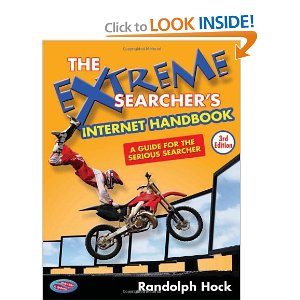
![]() 6 Stars–The ONE Essential Reference
6 Stars–The ONE Essential Reference
